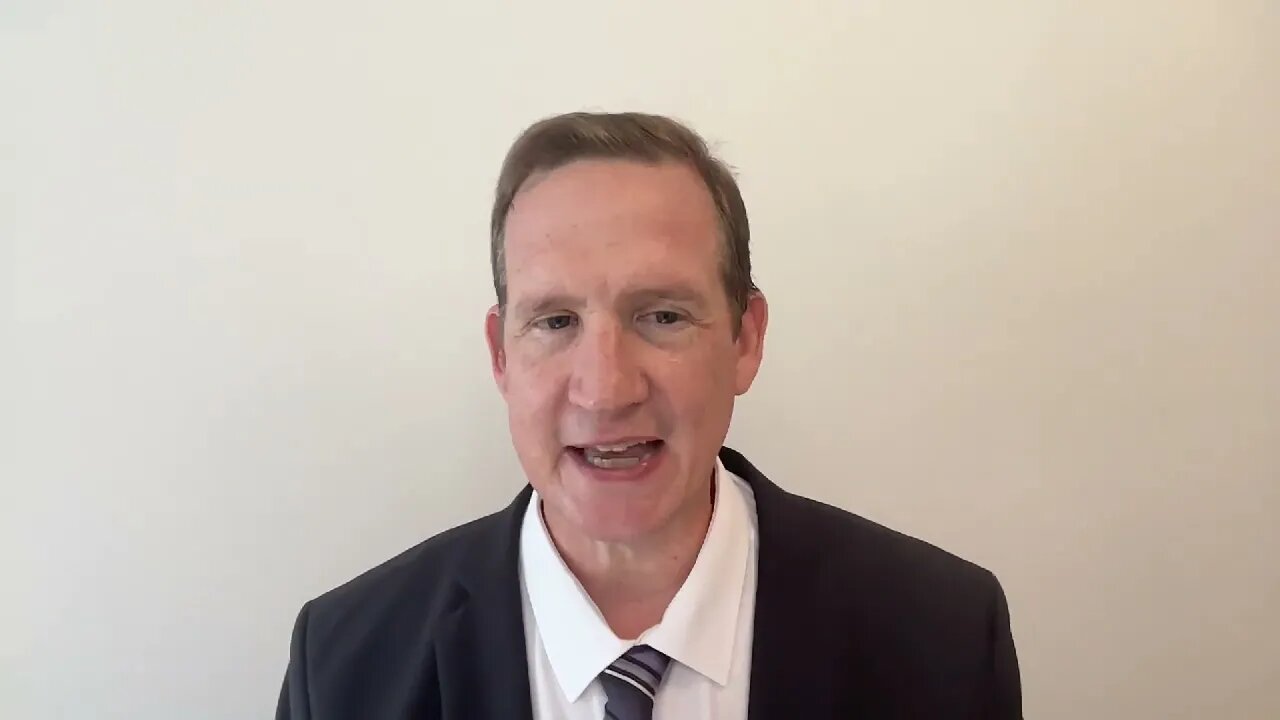Premium Only Content

How Will Rising Bond Yields Impact Your Mortgage and Car Loans?
There's been a significant buzz around the rising long-term US government bond yields and the potential repercussions it might have on the broader economy. To put this in perspective, think about the role of interest rates in your daily life. Interest rates determine the cost of borrowing, be it for a home, a car, or other major purchases.
Blackstone Group, which stands as the world's premier alternative asset manager, has shed light on this rising concern. Their president, Jonathan Gray, emphasized that as 10-year Treasury yields increase, it could lead to consumers tightening their spending. Here's a simple analogy: when the cost of a 30-year mortgage or car loans rises to 8%, it inevitably influences consumer behavior. In layman terms, if borrowing becomes more expensive, people may think twice before taking out loans or might adjust their budgets accordingly.
This surge in bond yields isn't just a theoretical concern. Just recently, the 10-year Treasury yields spiked to their highest in over a decade and a half, which had repercussions on the global stock markets. Additionally, the 30-year Treasury yields went past the 5% mark. Such fluctuations can reduce the value of financial assets across the board, influencing not just individual consumers but also large investment institutions.
Furthermore, a cascading effect occurs. As interest rates go up, the value of many public investments decreases, making it challenging for big investment firms to sell their existing investments and return money to their stakeholders. This dynamic has already started to manifest, causing institutions to step back from committing to new funds, thereby impacting the fundraising goals of major private equity groups.
However, there's a silver lining. Certain segments, like Blackstone's credit and insurance domain, are capitalizing on the situation by attracting investors who believe in benefiting from these rising rates.
It's crucial to note that while the current scenario might seem challenging, financial markets are cyclical. Jonathan Gray anticipates a surge in financial transactions once there's a sense of stability in the interest rates. When these rates stabilize and clear signals emerge from the Federal Reserve, it would provide a firmer ground for investors.
In conclusion, while the rising bond yields present challenges in the short term, the financial world is adept at adjusting to these shifts. As consumers and investors, staying informed and adapting our strategies will be key.
For anyone wanting a deeper dive or seeking guidance on how these changes might affect your personal financial strategies, feel free to reach out. You can email me at ben@benjaminzmiller.com. And if this insight was beneficial, please don't forget to like, subscribe, and share.
-
 58:41
58:41
BonginoReport
8 hours agoTrump Impersonations & Friday Fun w/ Shawn Farash - Nightly Scroll w/ Hayley Caronia (Ep.93)
65.7K17 -
 LIVE
LIVE
The Mike Schwartz Show
8 hours agoTHE MIKE SCHWARTZ SHOW Evening Edition 07-18-2025 with guest Congressman Buddy Carter!
4,198 watching -
 LIVE
LIVE
FusedAegisTV
4 hours agoRumble Smackdown! #004 Tekken 8 $100+ Online Tournament !bracket !prizepool
82 watching -
 1:03:43
1:03:43
Sarah Westall
1 hour agoPlanning is Over, War has Started: First Stage of Economic Global War: Commodities w/ Andy Schectman
3.88K -
 LIVE
LIVE
BSparksGaming
11 hours agoDonkey Kong BONANZA Walkthrough Gameplay! (Part 2)
121 watching -
 LIVE
LIVE
LFA TV
21 hours agoLFA TV ALL DAY STREAM - FRIDAY 7/18/25
623 watching -
 LIVE
LIVE
SilverFox
5 hours ago🔴LIVE - Fortnite - Maybe ABI Later + FoxChat DOUBLE XP
76 watching -
 1:21:58
1:21:58
Kim Iversen
7 hours ago"There Is No Death": What This Man Saw Outside His Body Will Blow Your Mind
84.3K60 -
 5:28:42
5:28:42
Dr Disrespect
8 hours ago🔴LIVE - DR DISRESPECT - NEW AAA BATTLE ROYALE ON UNREAL ENGINE 5 #OTG #OFFTHEGRID
156K16 -
 1:13:38
1:13:38
Roseanne Barr
8 hours agoThe Beast System: Chrislam & UN 2030 | The Roseanne Barr Podcast #107
52K57